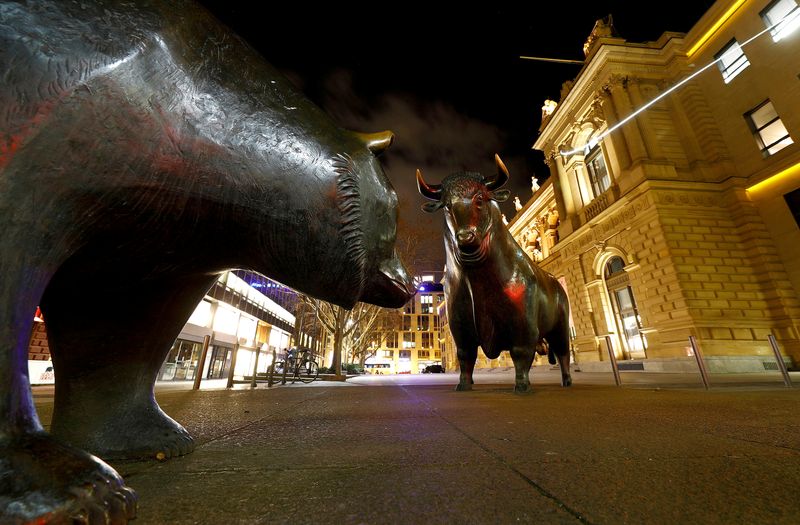By Yoruk Bahceli and Nell Mackenzie
LONDON (Reuters) -The collateral against potential losses posted on derivatives trades at Eurex has risen to a record high of around 130 billion euros ($128 billion) in the face of highly volatile markets and stubborn inflation, Erik Mueller, CEO of Eurex Clearing, told Reuters on Thursday.
This is up from around 100 billion euros needed during the COVID-19 outbreak that wreaked havoc on world markets in early 2020. Mueller told Reuters that risk models at Eurex Clearing suggested that the current environment meant there was a greater need to bolster liquidity.
He added that roughly 40% of the total requirement is due to use of interest rate swaps, up from a fraction during the COVID-crisis in 2020.
Mueller stressed a different macro backdrop compared to 2020, given a turn in the rates cycle, persistent geopolitical risks and the success of Euroclearing initiatives.
Eurex Clearing is part of Deutsche Boerse (ETR:DB1Gn)'s Eurex Exchange, one of Europe's biggest futures and options exchanges and clearing houses.
Analysts say that increased demand for collateral could be one sign of heightened investor angst given decades-high inflation and aggressive rate hikes from major central banks, not to mention Russia's invasion of Ukraine which is driving an energy crisis in Europe.
"In fixed income, as a guide very roughly, the requirements (for collateral) have doubled," Mueller told Reuters during a briefing.
"But looking at the last 10 years in rates volatility may not be a good guide to what's happening in the next 10 years."
The ICE (NYSE:ICE) BofA Move Index, a measure of volatility in the U.S. fixed income market, for instance, last week jumped to its highest level since March 2020 as British markets fell under acute selling pressure.
"We are seeing a greater demand of collateral but it’s not just demand in quality of collateral ... but it's also an ability to be able to reuse collateral, to be able to do that in an efficient way," Clearstream Securities CEO Samuel Riley said during the same briefing.
He noted increased talk in the industry about the "optimization of collateral" more generally.
Top-rated government bonds such as U.S. Treasuries or German bonds are often used in markets as collateral to raise cash. That has at times created a squeeze on triple-A rated German debt given how scarce it is after years of European Central Bank bond-buying.
"Because of the demands on collateral and the scarcity of high-quality collateral, firms are having to make sure they maximize the opportunity they have with the collateral they’ve got," Mueller said.

Many pension funds were caught out during a surge in British government bond yields last week that forced the Bank of England to step in. The funds had to stump up cash to meet collateral demands.
($1 = 1.0167 euros)